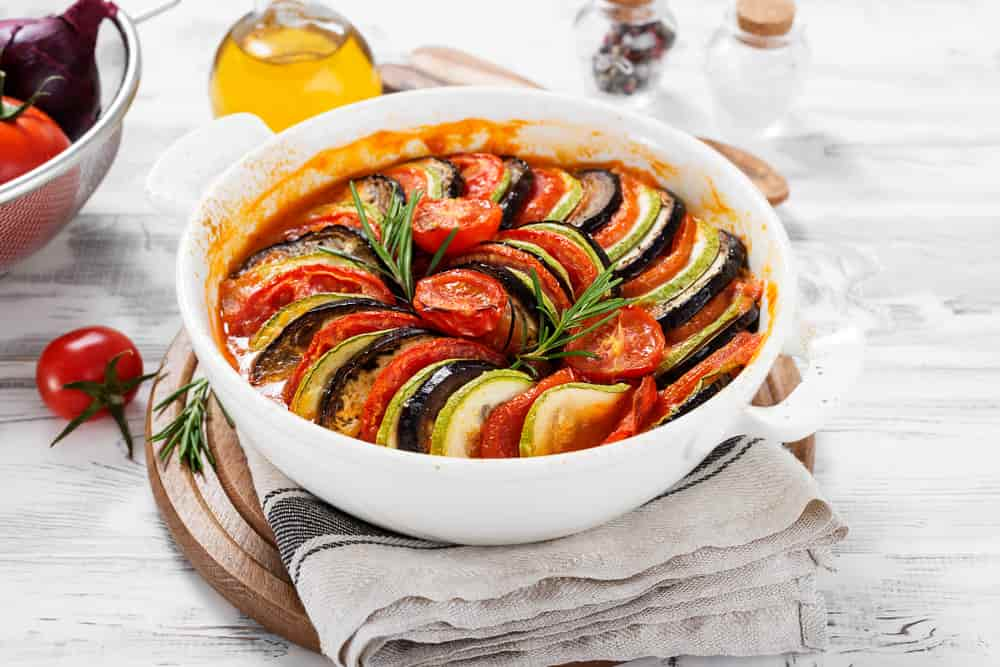Canned tomatoes and zucchini can make a traditional pantry dish. Making zucchini soup is a simple, quick, and easy process.
Several distinct preparations exist, each requiring a slightly different set of ingredients and resulting in a delicious soup. It is strongly suggested that you try some of this hearty soup and savor the delicious taste it has to offer. If you want to watch this lesson, we ask that you remain with us.
The onion should be peeled and finely chopped before being sautéed in a pan with some butter and oil until it becomes transparent. While the onion is still cooking, season it with ground black pepper and turmeric.
Carrots and potatoes, after having been peeled and sliced, are added to a mixture of minced onion and garlic. At this point, you may go ahead and cut the zucchini, but be sure to leave the green skin on. Three cups of chicken broth are another option.

The next step is to bring the mixture to a rolling boil. The vegetables should be cooked until soft, so keep the cover of the pot slightly ajar from then on out.
Once the ingredients have simmered for around 40 minutes, blend them with an electric mixer. Puree the ingredients in a food processor or blender if you don’t have access to an electric blender.
The soup will thicken as it sits after being pureed; after adding the steamed corn, give it a little swirl, then remove a ladleful to a plate, add the cream, and mix until combined; return to the pot. Add a dollop of cream and a pinch of salt just before serving. Have a nice meal.
It may be time to learn about the health benefits of zucchini if you are looking for a healthy way to lose weight. It may be quite useful in lowering body fat and boosting the health benefits of the foods you consume.
Furthermore, it may aid in the enhancement of vision and the avoidance of diseases caused by a deficiency of vitamin C, such as scurvy, sclerosis, and an increased inclination to bruise easily. Zucchini has several potential health benefits, and one of them is that it may be useful in the management of asthma.
Vitamin C, carbohydrates, protein, and fiber are all abundant in zucchini. Potassium, folate, and vitamin A are all found in high enough concentrations in it to make a difference in one’s health and well-being if ingested regularly.
The homocysteine levels in your blood may go down if you ingest it regularly. In addition to its efficiency and health benefits, there are several other reasons why this squash has gained in popularity.

Zucchini, sometimes known as courgette, is a kind of squash that originated in the United States. It comes in a wide range of colors, from yellow to light green to green. This little summer squash resembles a ridged cucumber from the surface, and its inside is dense with many seeds.
Others grow their zucchini in spheres or bottles. This kind of squash is presently mostly grown in Japan, China, Romania, Italy, Turkey, Egypt, and Argentina.
It’s available all year round and may be eaten raw, sliced, or cooked. Alternatively, you may shred it and use it in a warm or cold salad. While zucchini is classified as a fruit by certain authorities, it is often used in vegetable dishes and considered a vegetable by chefs. The reason for this is that cooking enhances the flavor of zucchini.
It’s gathered while its length is under eight inches (twenty cm) so that the seeds are still young and sensitive. A fully mature zucchini will grow at least three feet in length and is rich in fiber.
Young zucchini has a delicate taste, soft skin, and a smooth, white interior. May through July is when you have the best chance of getting it. Almost every component of this specific squash is edible, from the flesh to the seeds to the skin. Zucchini has a high percentage of minerals and vitamins.

Potassium, phosphorus, magnesium, calcium, fiber, vitamin C, and riboflavin are just some of the minerals and vitamins that may be found in zucchini. In addition, it is a good source of vitamins B6, A, and K, as well as the minerals salt and zinc. It contains a lot of water (around 94 percent), and it’s also a great source of fuel.
100 grams of raw zucchini has just 3.1 grams of carbs and 17 calories, according to the USDA. This means that both the carbohydrate and calorie content of zucchini is rather low. We have included a list of some of the zucchini’s health benefits below.
In a study conducted on animals and published in the journal Plant Foods for Human Nutrition, the researchers discovered that diabetic subjects that consumed both glucose and zucchini peels had a reversal in the negative effects that glucose had on their bodies. It may come as a surprise to find that eating zucchini might help you lose weight.
Some individuals claim that despite its low-calorie content, it aids them in feeling full. As a consequence, it’s a great way to satisfy your appetite without going overboard on calories or sacrificing healthy nutrients.
A daily intake of 6 milligrams of the antioxidant lutein, either food or supplementation, was shown in one research to be associated with a reduced incidence of cataracts and age-related macular degeneration (AMD).
Natural sources of lutein include broccoli, spinach, kale, maize, orange pepper, kiwi fruit, grapes, orange juice, zucchini, and squash. It has been shown that these nutrients help reduce the risk of cardiovascular disease and atherosclerosis in people with diabetes.

In a study published in The American Journal of Clinical Nutrition, it was shown that LDL cholesterol levels were inversely related to the number of servings per day of various fruits and vegetables, including zucchini. This means that the participants in the study had lower levels of LDL, or “bad cholesterol,” the more nutritious meals they consumed.
Some of the components in summer squash that helps prevent cholesterol oxidation in the body include the antioxidants beta-carotene and vitamin C. In addition to lowering blood sugar levels, the high fiber content of this meal also lowers cholesterol, which in turn reduces the risk of atherosclerosis and other diabetes-related heart diseases.
It’s well-known that zucchini is rich in manganese and vitamin C, but did you know it’s also a great source of dietary fiber? This means it may help you feel your best for longer.
Vitamin A, magnesium, folate, potassium, copper, and phosphorus are all present in healthy proportions in this food as well. Summer squash is an excellent source of several essential nutrients, including protein, omega-3 fatty acids, zinc, and niacin.
This fruit’s beneficial properties may be used to effectively treat benign prostatic hypertrophy (BPH), a disorder that affects males. Benign prostatic hyperplasia (BPH) causes the prostate gland to grow in a way that isn’t natural, which may cause issues with sexual and urinary function.

There is speculation that consuming foods rich in phytonutrients, such as zucchini, might dramatically reduce the severity of BPH symptoms. If you make zucchini a regular part of your diet, you will almost certainly feel healthier.
Proven effective against a wide variety of diseases. High-fiber diets have been linked to a lower risk of developing cancer because they flush the colon with cancer-causing chemicals. The digestive system is the site of this transformation.
Vitamin C, folate, and beta-carotene found in zucchini work together to defend these cells against the cancerous effects of environmental toxins. Moreover, a study published in the journal Nutrients found that the presence of the compound’s lutein, beta-carotene, zeaxanthin, and dehydroascorbic acid contributes to anti-proliferative and pro-apoptotic activities against tumor cells.
Because of their anti-inflammatory properties, both beta-carotene and vitamin C may be useful in alleviating the symptoms of inflammatory disorders such as osteoarthritis, asthma, and rheumatoid arthritis. The pain caused by swelling is one of the most prominent signs of these diseases.
Since zucchini contains a fair amount of copper, it may be useful in treating rheumatoid arthritis by reducing some of the symptoms experienced by sufferers.
Dietary health is essential, so make it a top priority. Due to our adherence to the highest quality standards, we will always provide our clients with healthful canned foods that taste great and exceed their expectations.
By incorporating moral farming practices, exhaustive strategies for food safety, a commitment to openness, and cutting-edge manufacturing, we provide people access to a level of healthy living that has never been available before.
Our company’s goal is to improve global health and environmental sustainability by raising awareness about those canned foods that are the most nutrient-dense while also having the least ecological footprint.
One of our key aims, as we strive to become the new global leader in the fresh produce sector, is to fully tap the potential of the business by using the combined expertise of all of our employees and the worldwide reach of our local operations.
Our vertically integrated supply chain will allow us to further optimize the supply chain from farm to fork, forging the shortest route to market, while the well-respected Sagharcanned brand will be the driving force behind innovation and new product development, adding value and providing a tangible point of differentiation.
Doing so is critical if we want to serve consumers all over the world with a product that lives up to their needs and wants and earns the loyalty of our customers.

Your comment submitted.